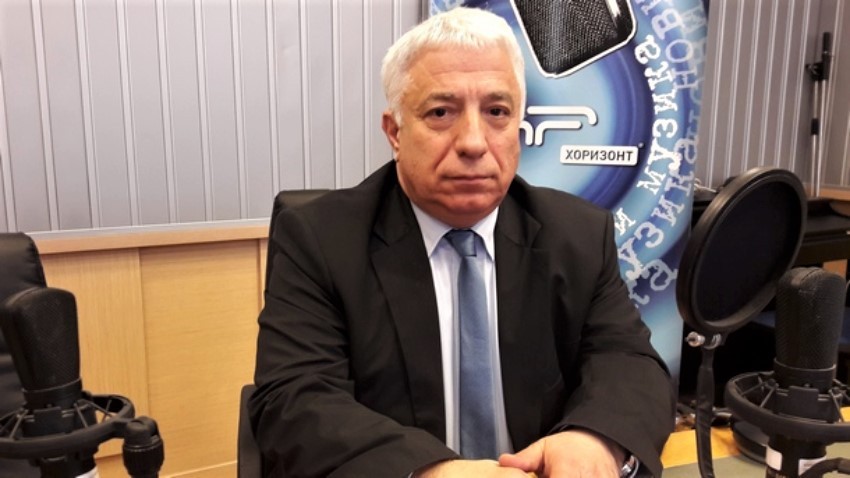By recognizing the Donetsk and Luhansk republics as independent states and dispatching “peacekeeping” forces, Russia is challenging Europe in very real terms. For the most part, the international community, including Bulgaria, have labelled Russia’s actions as a blatant violation of international law and a pretext for war. This has been followed by decisions to enforce sanctions against Russia and the breakaway regions from Ukraine.
Свързана публикация в текста:
In light of the unfolding events, the consequences for Bulgaria are on many levels. According to political analyst Valery Todorov, BNR correspondent in Moscow for many years, the situation in the region is changing by the hour. On the one hand the fears of a mass Russian invasion have not come to pass, on the other – the development of the crisis is definitely a cause for concern.
“It is clear that fueling tension and maintaining turmoil in these regions is going to have a dire effect on economic development and the lives of the people there,” Valery Todorov says and adds:

“We have every reason to worry, because there is an ethnic Bulgarian population living in these regions. Some of them are sympathetic towards Ukraine, others towards Russia, but what is important is that their security be provided for, that they look to the future with confidence. I believe that Bulgaria must demonstrate a more moderate approach. In view of our historical ties, we have an equally good attitude towards Ukraine and towards Russia, and we can only express regret that two close nations have come to such a conflict. Any encouragement of aggression, in either direction, would be counterproductive.”
Some political analysts say recognition of the two republics can be said to be an attempt to overcome a military conflict on a larger scale, but according to Valery Todorov tension there is not abating. Adding to this the situation in Transnistria, Abkhazia and South Ossetia, or even Nagorno-Karabakh, which have been a source of cascading problems around Russia, Bulgaria’s measured response to the Ukraine crisis is easy to explain, the analyst says. The delicate position Bulgaria is in is connected with two important factors. On the one hand there is the policy resulting from the fact that the country is a member of the EU and NATO, and its partnership with the US, and on the other – the powerful Russophile sentiments in the country. “I think that thus far Bulgaria has found the correct approach of not committing to direct military action, or action that could be interpreted as hostile, whether regarding Russia or Ukraine, no matter,” Valery Todorov says.
“We must take stock of the fact that Russia is not a country that can be pushed towards peace by force. A dialogue is needed because it is a big country, a nuclear power, security matters cannot be resolved using an imperative tone of voice. Russia should be regarded as an equitable partner, treating it like an “enemy” can only encumber the dialogue. New world powers are emerging and that fact is obviously going to raise concerns but it should not be anything to worry about. With this in mind, security talks should be placed on an equal footing between North, South, West and East.”
Though slim, there is still some hope that diplomacy will prevail, even though the sanctions against Russia are a fact. As to Bulgaria, as is usual when tensions between Russia and the West rise, there is, inevitably, fallout for the Bulgarian economy. The certification of Nord Stream 2 has been halted, Germany and France will suffer losses, but for small countries like Bulgaria, which is in the throes of an energy crisis, the consequences will be even more appreciable.

“Let us hope that with energetic, pre-emptive measures the government will be able to prevent some of them, but I am not optimistic. It is, as yet, unclear whether the situation won’t spill over into further excesses,” Valery Todorov says in conclusion.
GERB will try to find a path to a majority for forming a government through the formulation of common goals, the party's Deputy Chairman Daniel Mitov said in an interview with BNR. According to MP Daniel Mitov, the attempts to create a cordon sanitaire..
"A Peevski-wrapped GERB - we cannot work with this combination" - former Prime Minister Nikolay Denkov told journalists ahead of the We Continue the Change National Council meeting, adding that "we have already seen the result of this kind of work and..
For the seventh time in three years, Bulgarians went to the polls, and the results shed light on some of the behind-the-scenes manoeuvring. A seemingly minor detail in the counting of votes for the Velichie party, which missed the 4% threshold to enter..
Pro-Russian candidate takes lead in first round of presidential election in Romania In a shock development, independent far-right, pro-Russia..

+359 2 9336 661
